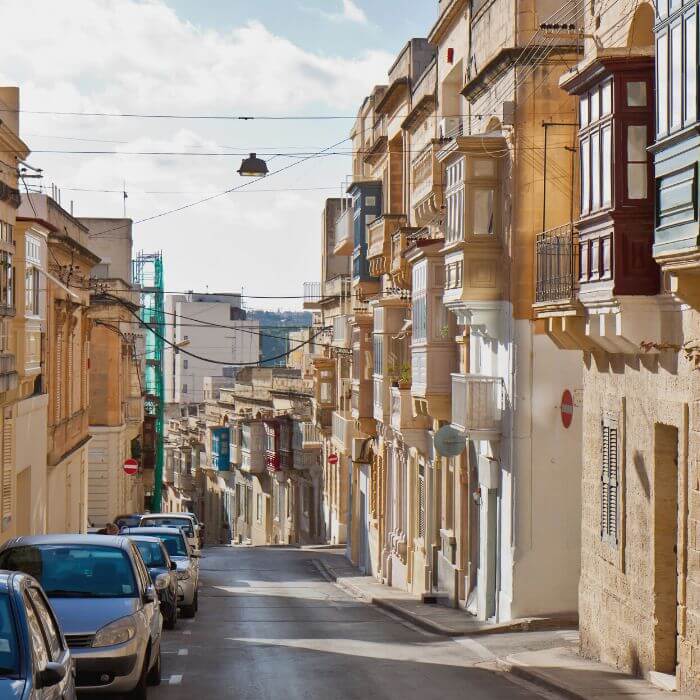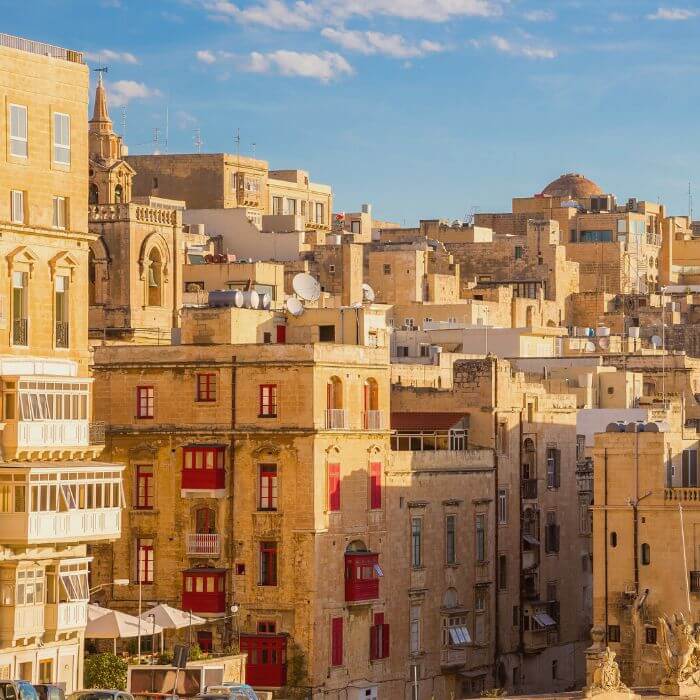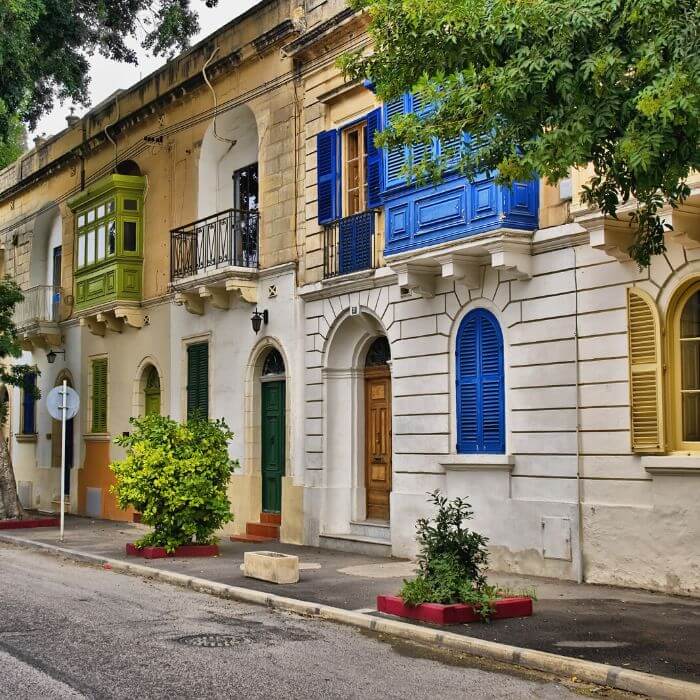Property Inheritance Malta
Guiding You Through Maltese Legacies
Inheritance Malta
If you’re the beneficiary of a legacy from a Maltese relative or friend — it’s crucial you receive expert advice from a professional Property Inheritance Malta lawyer.
Although the nation shares many similar procedures and statutory legal instruments with Australia, this Mediterranean island has numerous judicial nuances particular to the country.
Furthermore, reconciling the demands of domestic inheritance legalities with those required by the Maltese authorities can be challenging. It necessitates a legal advisor both familiar and experienced in Australian and Maltese regulations.
At Falzon Legal, as a specialised Malta Lawyer in Sydney, our highly proficient International Estate planning team will guide and advise you diligently and compassionately through the complex area of cross-continent property inheritance.
Maltese Law on Inheritance
Multi-jurisdictional inheritance is a complex area of Estate Law.
In some situations, the overseas legalities take precedence — in others, it’s the regulations and rules of your domicile that determine the required procedures.

Falzon Legal will navigate you considerately and supportively through the domestic and Maltese laws — relentlessly professional, yet enduringly supportive, at what could be an emotional time.
The factors which can complicate pan-continent legacies include:
- How the inheritance was bequeathed.
- Locating and/or validating the Last Will and Testament.
- Translating documents in an unfamiliar language.
- Locating the beneficiaries in different countries.
- Obtaining Power of Attorney.
- Locating the asset(s).
- Tax jurisdictions.
An Overview of Inherited Property in Malta
Your circumstances are inherently specific — and we will advise and guide based on the demands of your particular state of affairs. However, as a general guide, here are the key areas of Maltese Inheritance.
The Rules Behind Maltese Property Law for Inheritance
With strong ties and parallels to Italian Law, the legalities underpinning the inheritance in Malta are found in the country’s Civil Code.
Within, it outlines how assets — including property — can be bequeathed and/or transferred after an individual passes on. Generally speaking, these include:
- With a Last Will and Testament
- By establishing a Trust
- Through a Secret Will
- Via the rules of Intestacy
Through whichever means you become the beneficiary, our experience enables us to lead you conscientiously down the International Inheritance pathway.
The Varieties of Maltese Wills
In Malta, as in Australia, the typical method of leaving property to loved ones is through the creation of a Last Will and Testament.
However, the European island has a variety of Will formats — some of which may be unusual, not just to ordinary Australians, but also to professional domestic solicitors who are inexperienced with Maltese Law.
The following Will types are all acceptable in Malta:
- A standard Last Will and Testament — signed, witnessed, and registered.
- A secret Will, not recorded in the Public Registry.
- Unica charta Will — a reciprocal Will, only available to spouses, that bequeaths property to either party in the event of the other’s demise.
- Privileged Wills — made under extraordinary or unusual conditions where following the usual strict requirements are impossible.

Hence, your Maltese Property Inheritance may be through any of the above instruments.
Furthermore, depending on the format of the Last Will and Testament, Maltese regulations determine what can be considered a valid Will. In many circumstances, these include that the document:
- Was written by an individual, without duress and with full cognition of their actions.
- The Testator (Will-writer) was 18 years or older when creating the Will.
- Was signed by two witnesses at the same time as the Testator signed the legacy document.
Intestacy as Part of Succession Law Malta
If a Maltese national passes on without a functioning Will — the Law of Intestacy applies.
This typically occurs where:
- The deceased did not write a Will.
- The Will cannot be found.
- The Last Will and Testament is considered invalid — for example, it is unsigned or unwitnessed.
- Some assets remain unmentioned in the Will.
- The named beneficiaries refuse the inheritance.
- A named beneficiary cannot receive the inheritance — for example, they have also passed on.
Inheriting a property from Malta through Intestacy can be seriously convoluted and complex — involving not just spouses, but also descendants (e.g. children), ascendants (for example, grandparents), and siblings.
If you believe you should be the beneficiary of property from a deceased Maltese national — but they left behind no Will — speak to us as soon as possible. Our knowledge of the island’s Intestacy legalities will ensure you receive any entitlements.

Malta Inheritance Tax
As in Australia, there is no inheritance tax in Malta.
Although, if you do inherit property, you will be expected to pay Maltese Transfer Duty. Typically, this represents five percent of the overall market value of the inheritance.
But, be careful. While you may have no liability to pay inheritance tax in Malta or Australia — other Australian taxes may apply. These include:
Corporate or Personal Income Tax
If the Maltese property you inherit generates any income — any such amounts could be liable for taxation.
In most cases, this occurs where you’re the beneficiary of a building with tenants. So, while the actual bricks and mortar will not be subject to taxation — any funds created or resulting from the premises could be liable to corporate or personal income tax.
Furthermore, although Australia has an Avoidance of Double Tax Treaty with Malta — effectively protecting you from paying the same tax in two countries — it’s tightly regulated. With liabilities dependent on proof of residence, and the definition of what’s considered a permanent establishment — it’s a taxation minefield.
Fully conversant with multi-jurisdictional taxation, we will ensure you only pay the required taxes and levies in Australia and/or Malta.
Capital Gains Tax
If you inherit a property in Malta, and then later sell the building for a profit, you may be liable to Australian Capital Gains tax.
The ATO considers the date of death of the benefactor as the Point of Market Valuation. Therefore, any sums you receive at a later date for selling the property that exceeds the valuation, may be taxed.
That said, there are some exclusions — for example, you inherit and then sell a family home in which you’re considered domicile.
Inheriting a property is highly nuanced and requires specialist advice in relation to taxation. Speak to Falzon Legal to ensure you remain within the Law.
Don’t Pay Excessive Capital Gains Tax on Maltese Property — Talk to Us Now
Challenging a Maltese Inheritance of Property
Unfortunately, there may be occasions where you feel you, or others, were treated unfairly or unjustly in regard to a Maltese inheritance.
As an Australian, you’re as equally entitled to contest or challenge a Will or Intestacy as a Maltese national. However, it’s crucial that this is done in a timely manner — before the estate is divided and allocated.
The reasons for a challenge or contest are varied, and may be because you believe:
- The Testator was mentally and cognitively unsound when they wrote the Will.
- The Last Will and Testament was made under duress, pressure, or threats.
- The Will is invalid — for example, it was unsigned or unwitnessed.
- The Testator was not 18 years of age.
- Beneficiaries, who, under normal circumstances, would be included in the Will, are omitted and ignored.
Although similar, grounds for appeal in Malta can differ slightly from Australian pretexts for contest and challenge. Meaning you need the backing of a solicitor knowledgeable and experienced in Maltese inheritance and estate Law.

At Falzon Legal, we will navigate you along the often time-consuming, involved, and layered pathway of inheritance challenge. Not just providing diligence and expertise, but delivering unparalleled support through what can be a highly emotive and upsetting process.
Falzon Legal — Parramatta’s Specialised Inheritance Maltese Property Lawyers
As symbolised by our Maltese Cross emblem, Falzon Legal is your International Estate Solicitor with unsurpassed experience in Malta’s property inheritance laws.
Boasting strong bonds with this European island — with our founder’s grandfather emigrating from Malta to Australia — you can expect more than just theoretical advice.
Our proven history of successful and timely cross-continental property inheritance familiarity and insight delivers the pinnacle of counsel in Sydney — across all areas of Maltese estates.
While by no means exhaustive, our Maltese Property Legacies service includes:
- Maltese Probate
- Writing a Will in Malta
- Non-standard Maltese Wills
- Contesting or challenging Wills in Malta
- Maltese property transfers
- Tax liabilities and efficiencies for Maltese properties
- Maltese Intestacy laws
- Malta Power of Attorney
- Trusts and Foundations in Malta
Falzon Legal — Professionalism and Compassion

While Maltese Property Inheritance is more complex and multifaceted than dealing with matters only here at home — the worry, upset, and heartache can be equally as deep.
The issue is accommodating legal practicalities with the emotions of the passing of a family member or friend. With Falzon Legal — you’re assured guidance and support through both.
Our unsurpassed experience in Maltese Estate Inheritance ensures you can embrace the optimum of knowledge and diligence. Working incessantly on your behalf, we will engage with our fellow European professionals to ensure your best interests and outcomes are achieved — promptly and accurately.
But, we are always conscious of your comfort and wellbeing. Meeting face-to-face at our office or in your home, we will offer support and reassurance through the most sombre and emotive circumstances.
Don’t be overwhelmed by the challenges behind Property Inheritance Malta — allow Falzon Legal to ease the burden.
Property Inheritance in Malta FAQs
What Types of Wills Are There in Malta?
Generally speaking, Chapter 16 of the Maltese Civil Code recognises two types of Wills — Secret and Public.
Public Last Will and Testaments are validated in front of two witnesses and a Notary, and recorded in the Public Registry. Secret Wills are made by the Testator (Will-writer) and given to the Notary Public, who in turn delivers them to the Registry of the Court of Voluntary Jurisdiction.
Furthermore, there are two further, and less common, Wills — Privileged and unica charta.
Do I Pay Inheritance Tax on My Maltese Property Inheritance?
Neither Malta nor Australia has inheritance tax. However, you may be liable to pay five percent of the property’s market value in Transfer Duty — under Maltese regulations.
Can I Challenge a Will in Malta?
If you believe that you have been unfairly or unjustly treated in Maltese Inheritance, or do not believe the Will is valid — as an Australian you can still challenge or contest the Will.
What Is the Maltese Law of Succession?
The Succession Law in Malta decrees that the offspring and the wife/husband of a deceased person are eligible for a share of the estate — unless explicitly disinherited.
Furthermore, under certain conditions, siblings and ascendants may also be entitled to an inheritance.
Can I Rent Out My Maltese Property That I Inherited?
Yes. Although you may be liable for income tax on any financial returns — in either Malta or Australia. You should seek legal advice to ensure that you not only meet your taxation obligations, but also do not pay double tax.
